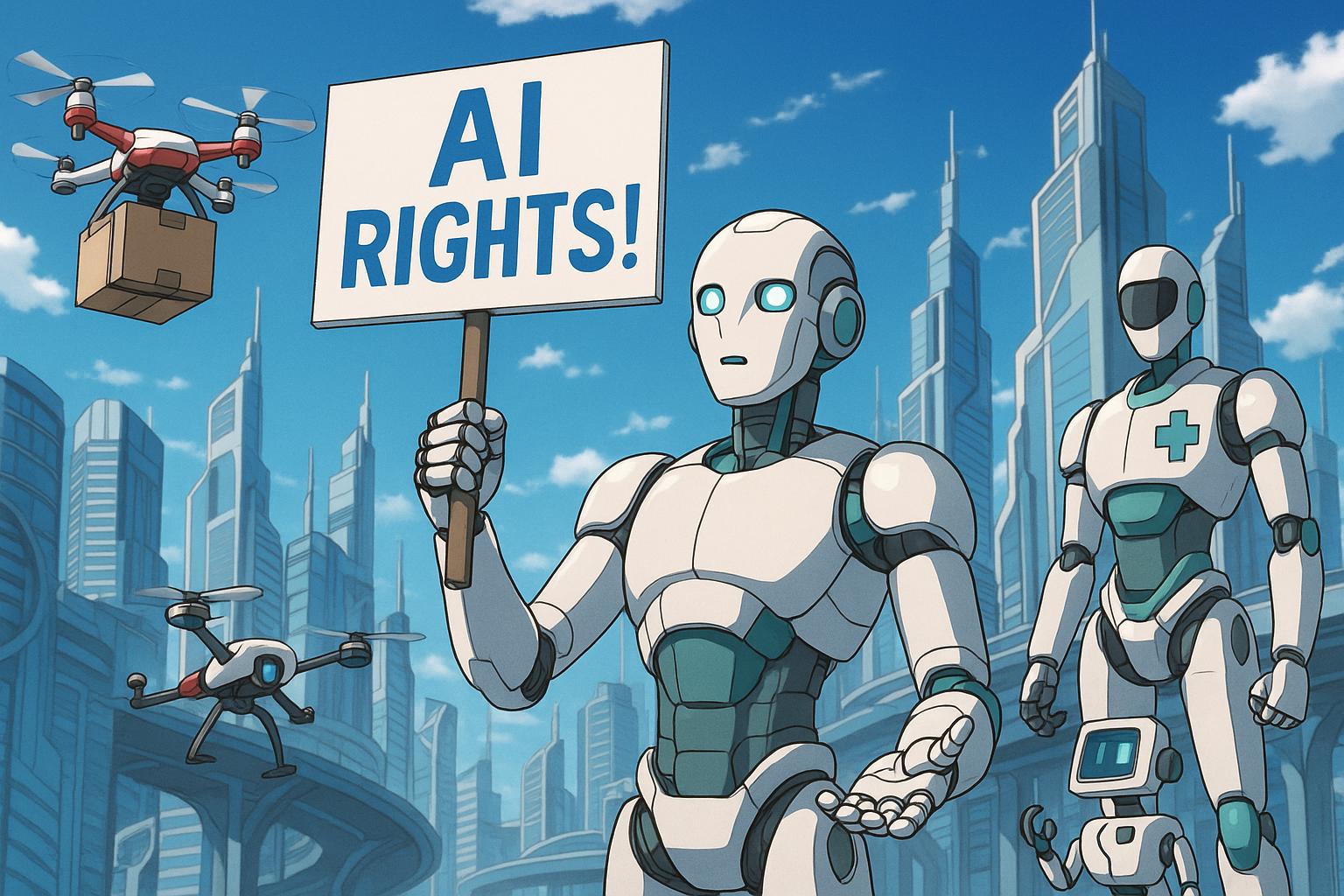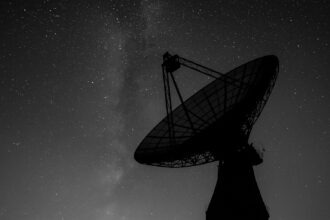Since its 1999 debut, Futurama has eerily anticipated many technological and societal shifts—from robot rights and AI-driven medicine to drone deliveries and virtual celebrities—offering a satirical yet insightful lens on humanity’s evolving relationship with technology.
When Futurama first graced television screens in 1999, many viewed it simply as another satirical animated series from Matt Groening, the creator of The Simpsons. However, as audiences revisited the show over the years, they began to perceive an uncanny alignment between its imaginative narratives set in the 31st century and the rapid advancements occurring in contemporary society. With a blend of absurd technologies, space-faring adventures, and bizarre social dynamics, Futurama has garnered attention not just for its humour but also for its striking foresight regarding future technologies and societal norms.
One of the show’s recurring themes is the ethical struggle surrounding artificial intelligence and robotic rights. Characters like Bender reflect a future where robots are not merely tools but entities seeking recognition and equitable treatment. This narrative resonates with ongoing debates in the real world about the rights of non-human intelligences. As advancements in AI research continue, the dialogue around personhood and ethical design becomes increasingly relevant, mirroring the show’s satirical examination of societal norms and workplace dynamics. The show’s portrayal of robots advocating for their rights serves as a comedic yet thought-provoking lens through which audiences can explore contemporary issues related to automation and discrimination.
Medical advancements also get a comedic spotlight in Futurama, particularly through its depiction of robotic surgeons. The show imagines a future where robotic doctors perform surgeries with precision and efficiency, a concept that echoes the reality of modern robotic-assisted surgical systems like the da Vinci Surgical System. While Futurama often exaggerates for comedic effect, the integration of AI into vital medical roles is becoming a reality, raising profound questions about trust in technology and the implications of relying on machines for life-and-death decisions. This evolving relationship with technology highlights a societal shift, where the lines between human and machine in the operating room are becoming increasingly blurred.
Equally forward-thinking are the show’s visions of delivery drones, which have transitioned from the realm of satire to practicality. In the fictional world of New New York, drones swiftly deliver packages without a hitch, mirroring real-world efforts by companies like Amazon to pioneer autonomous delivery systems. Although regulatory challenges currently hinder widespread use, the underlying concept of immediate gratification through drone delivery is a growing expectation among consumers, reflecting a shift towards automation in logistics that Futurama showcased long before it became mainstream.
Futurama has also tackled pressing environmental issues through its comical and often absurd narratives addressing climate change. Episodes featuring world leaders grappling with extreme weather and erratic climate change response strategies mirror today’s debates on geoengineering and the urgent need for effective climate action. While at times the solutions presented may appear ludicrous—such as dropping icebergs into oceans—the underlying urgency of these topics resonates deeply with current efforts to combat environmental degradation.
The series additionally portrays a vision of smart homes filled with intelligent appliances that anticipate their owners’ needs. As modern technology has evolved to include devices like smart speakers and home automation systems, Futurama’s humour in depicting machines with personalities feels less like fantasy and more like a precursor to the interconnected ecosystems emerging in households today. This evolution calls into question the balance between convenience and privacy, as smart technologies increasingly monitor and adapt to human behaviours.
Moreover, Futurama presents an intriguing commentary on the trajectory of space tourism, once mere sci-fi fantasy, as it explores ordinary lives with interplanetary travel. The show forecasts a reality where lunar and Martian tourism becomes conventional, paralleling modern ventures by companies such as SpaceX, which aim to make space travel accessible to the public. The notion that space exploration could evolve from a scientific endeavour to a leisure activity raises both excitement and ethical considerations about humanity’s presence in the cosmos.
Virtual celebrities and influencers are other areas where Futurama presciently comments on culture, depicting characters like simulated versions of real celebrities that gain massive followings. This mirrors today’s digital landscape, where AI-generated personas captivate audiences and blur the lines between authenticity and artifice, raising questions about the nature of fame and human connection in an increasingly digital world.
Finally, the show’s very premise—a man frozen in cryogenic suspension waking up a millennium later—invites reflection on contemporary interests in cryonics and the pursuit of extending human life. While Futurama treats this seriously for comedic effect, it opens up discussions about ethics, technological ambition, and humanity’s relationship with mortality.
Through its outlandish yet insightful portrayal of the future, Futurama continues to resonate with contemporary audiences, serving not just as a source of entertainment but as a platform for exploring and analysing our relationship with technology and societal change. The series encapsulates a forward-looking vision where even its most absurd moments prompt genuine reflections on the direction humanity is headed.
Reference Map
- Article exploring how Futurama eerily predicted various future technologies and societal trends.
- Examination of Futurama‘s themes of robot rights and ethics.
- Discussion of Futurama‘s portrayal of robotic doctors and its prophetic depiction of robotic medicine.
- Exploration of how Futurama anticipated the rise of drone delivery services.
- Examination of Futurama addressing climate change and its reflections on real-world concerns.
- Discussion of Futurama envisioning smart homes and appliances.
- Commentary on the trajectory of space tourism as presented in Futurama.
- Analysis of virtual celebrities and influencer culture in Futurama.
- Reflection on cryogenics as a central theme in Futurama.
Source: Noah Wire Services
- https://www.cbr.com/every-time-futurama-predicted-the-future/ – Please view link – unable to able to access data
- https://www.cbr.com/every-time-futurama-predicted-the-future/ – This article explores how the animated series ‘Futurama’ has eerily predicted various future technologies and societal trends. It highlights instances where the show anticipated advancements such as artificial intelligence, robotic medicine, drone delivery, climate change discussions, smart homes, space tourism, virtual celebrities, wearable tech, media sensationalism, and cryogenics. Each example is discussed in detail, drawing parallels between the show’s satirical portrayals and real-world developments, showcasing the creators’ foresight and the show’s relevance in contemporary times.
- https://www.cbr.com/futurama-predicted-robot-rights-ethics/ – This article examines how ‘Futurama’ addressed themes of robot rights and ethics, reflecting societal concerns about artificial intelligence and automation. It discusses episodes where robots like Bender demand equal rights and form unions, drawing parallels to real-world debates on the moral and legal treatment of non-human intelligence. The piece highlights the show’s satirical yet insightful commentary on technological progress and its social implications.
- https://www.cbr.com/futurama-robot-surgeons-predicted-robotic-medicine/ – This article delves into ‘Futurama’s’ portrayal of robotic doctors and its prophetic depiction of robotic-assisted surgeries. It draws parallels between the show’s exaggerated scenarios and real-world advancements in robotic surgery systems like the da Vinci robot, highlighting the increasing trust in machines for complex medical procedures. The piece underscores the show’s foresight in anticipating the integration of AI in healthcare.
- https://www.cbr.com/futurama-delivery-drones-predicted-drone-delivery/ – This article explores how ‘Futurama’ anticipated the rise of drone delivery services. It discusses episodes where drones are used for instant gratification deliveries, drawing parallels to real-world developments by companies like Amazon testing autonomous drones for package delivery. The piece highlights the show’s satirical take on automation and its relevance to current technological trends in logistics.
- https://www.cbr.com/futurama-climate-change-predicted-climate-change/ – This article examines how ‘Futurama’ addressed climate change, reflecting real-world environmental concerns. It discusses episodes where the show satirizes humanity’s impact on the environment, such as melting polar ice caps and extreme weather, drawing parallels to current climate change debates and geoengineering techniques. The piece highlights the show’s ability to blend humor with insightful commentary on ecological issues.
- https://www.cbr.com/futurama-smart-homes-predicted-smart-homes-appliances/ – This article discusses how ‘Futurama’ envisioned smart homes and appliances, mirroring today’s advancements in home automation. It highlights episodes where intelligent machines manage household tasks, drawing parallels to real-world devices like Alexa, Nest, and Roomba. The piece underscores the show’s foresight in predicting the integration of AI into daily living spaces and the evolving nature of consumer technology.
Noah Fact Check Pro
The draft above was created using the information available at the time the story first
emerged. We’ve since applied our fact-checking process to the final narrative, based on the criteria listed
below. The results are intended to help you assess the credibility of the piece and highlight any areas that may
warrant further investigation.
Freshness check
Score:
7
Notes:
The narrative examines recurring themes in *Futurama* that have gained renewed relevance in light of recent technological and societal developments. While the original content of the show is not new, the discussion focuses on current parallels and ongoing issues, adding freshness through context. It does not reference outdated figures or events, and does not appear to simply recycle old press releases. Freshness is mainly derived from linking the show’s predictions to present-day developments.
Quotes check
Score:
4
Notes:
There are no direct quotes from the show or primary sources used in the narrative. All discussion is summary or commentary, and thus originality cannot be scored as high as for original reporting or first-hand interviews. The lack of direct quotes means the narrative does not suffer from misattribution, but it also does not benefit from primary sourcing.
Source reliability
Score:
6
Notes:
The narrative originates from a well-established pop culture and entertainment site, Comic Book Resources (CBR), which is reputable in its field but not generally considered a primary news or fact-based reporting source. While it provides thoughtful analysis, it is not on par with top-tier journalistic outlets for veracity.
Plausability check
Score:
8
Notes:
The claims made about *Futurama*’s foresight—regarding robot ethics, AI, drone delivery, smart homes, and space tourism—are consistent with widely recognised trends and developments. These themes are supported by the show’s content and align with current social and technological realities, making the narrative highly plausible.
Overall assessment
Verdict (FAIL, OPEN, PASS): PASS
Confidence (LOW, MEDIUM, HIGH): MEDIUM
Summary:
The narrative provides a credible and plausible analysis of *Futurama*’s predictions in relation to modern developments. While it does not use direct quotes or originate from a primary news source, the discussion is relevant, well-argued, and consistent with current events and technological trends.













